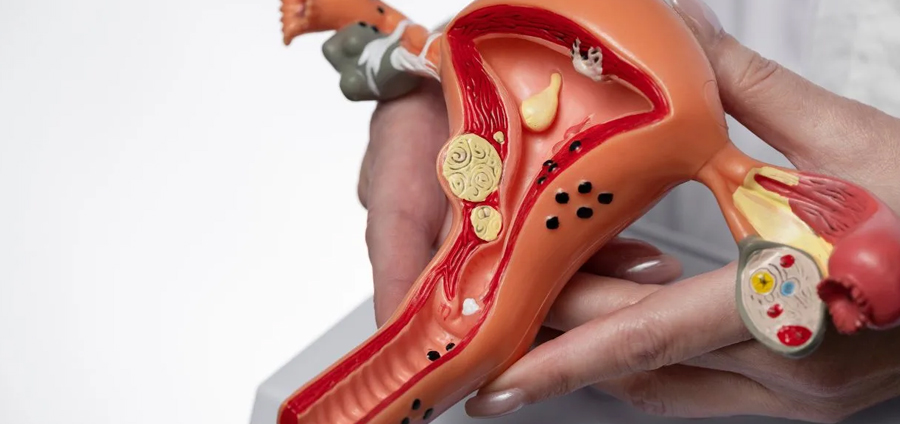
PCOD
Polycystic Ovarian Disease (PCOD), also known as Polycystic Ovary Syndrome (PCOS), is a common hormonal disorder affecting women of reproductive age. It is characterized by a combination of symptoms caused by an imbalance of reproductive hormones, which affects the ovaries' ability to function normally.
Causes of PCOD
The exact cause of PCOD is not fully understood, but several factors are thought to contribute:
- Hormonal Imbalance: Women with PCOD have higher-than-normal levels of androgens (male hormones), which disrupts the normal process of ovulation.
- Insulin Resistance: Many women with PCOD are insulin-resistant, meaning their bodies cannot use insulin effectively, which can lead to increased production of insulin and result in increased androgen levels.
- Genetics: PCOD can run in families, suggesting a genetic link.
- Lifestyle Factors: Obesity, poor diet, and lack of physical activity can exacerbate the symptoms of PCOD, although it can affect women of any weight.
Symptoms of PCOD
The symptoms of PCOD can vary but often include:
- Irregular Periods: Infrequent, irregular, or prolonged menstrual cycles are one of the most common signs.
- Excess Androgen Levels: High levels of androgens can cause physical signs such as excess facial and body hair (hirsutism), severe acne, and male-pattern baldness.
- Ovarian Cysts: The ovaries may become enlarged and contain multiple small, fluid-filled cysts that result from follicles that fail to release eggs regularly.
- Weight Gain: Many women with PCOD experience difficulty managing their weight or are prone to obesity, which can worsen the condition.
- Infertility: PCOD is one of the leading causes of infertility in women, as irregular ovulation or failure to ovulate can make it difficult to conceive.
- Darkened Skin: Some women develop patches of dark skin, particularly in body creases such as the neck, groin, or under the breasts (acanthosis nigricans).
Diagnosis of PCOD
To diagnose PCOD, doctors typically use the following criteria (based on the Rotterdam criteria):
- Irregular or Absent Menstrual Periods: Evidence of anovulation (lack of ovulation).
- Excess Androgen Levels: Clinically or through blood tests showing elevated levels of male hormones.
- Polycystic Ovaries: Identified through an ultrasound, showing multiple small cysts on the ovaries.
At least two of these three criteria must be present for a diagnosis of PCOD. Other potential causes of symptoms, such as thyroid issues, must also be ruled out.


